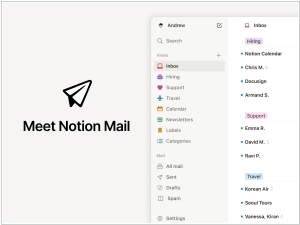Basecamp vs Smartsheet
March 07, 2025 | Author: Adam Levine
11★
Basecamp tackles project management with a focus on communication and collaboration. Making to-do lists and adding to-do items literally just takes seconds. Basecamp is optimized to make the things you do most often really fast and really easy. Basecamp mobile is especially made for popular mobile devices like iPhone and Android.
28★
Smartsheet is an online project management and crowdsourcing tool. It allows owners of information to comprehensively involve contributors through authenticated access, publicly-accessible published sheets, or via embeddable survey forms. Functionality is focused on the ability to organize, share, and update tasks and files.
Project management software, like time itself, is an illusion—lunchtime doubly so. Basecamp and Smartsheet both promise to make work easier, though they go about it in wildly different ways. They exist in the cloud, where all good and nebulous things reside, allowing teams to collaborate, assign tasks and share files with the ease of a Vogon reciting poetry (but ideally with less suffering). They both plug into other digital contraptions like Slack and Google Drive, forming an interconnected web of productivity or, depending on the user, a labyrinth of well-intentioned confusion.
Basecamp, a proud American creation from 2004, is for those who believe that project management should be as simple as making a cup of tea—without any intergalactic bureaucrats interfering. It offers message boards, group chats and a flat-rate pricing system that makes accountants less likely to spontaneously combust. However, it avoids things like Gantt charts and complex reporting, possibly because its creators once saw one, recoiled in horror and vowed never to inflict such sorcery on their users. It’s beloved by small teams, creatives and people who prefer clarity over an endless sea of buttons and features.
Smartsheet, born two years later in the same land of hamburgers and grandiosity, takes a different approach, catering to those who find joy in spreadsheets and automation—or at least pretend to. It turns project tracking into an intricate puzzle of dependencies, Gantt charts and formulas that only the truly brave dare to master. Unlike Basecamp, it charges per user, which means large organizations with too many employees to count will either love it or curse it, depending on whose budget it affects. It thrives in construction, finance and IT, where complexity is not a bug but a highly sought-after feature.
See also: Top 10 Project Management software
Basecamp, a proud American creation from 2004, is for those who believe that project management should be as simple as making a cup of tea—without any intergalactic bureaucrats interfering. It offers message boards, group chats and a flat-rate pricing system that makes accountants less likely to spontaneously combust. However, it avoids things like Gantt charts and complex reporting, possibly because its creators once saw one, recoiled in horror and vowed never to inflict such sorcery on their users. It’s beloved by small teams, creatives and people who prefer clarity over an endless sea of buttons and features.
Smartsheet, born two years later in the same land of hamburgers and grandiosity, takes a different approach, catering to those who find joy in spreadsheets and automation—or at least pretend to. It turns project tracking into an intricate puzzle of dependencies, Gantt charts and formulas that only the truly brave dare to master. Unlike Basecamp, it charges per user, which means large organizations with too many employees to count will either love it or curse it, depending on whose budget it affects. It thrives in construction, finance and IT, where complexity is not a bug but a highly sought-after feature.
See also: Top 10 Project Management software





